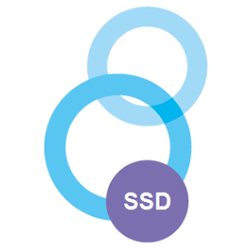News
First Smart Sustainable Districts Webinar
On May 23rd the first of a series of four Smart Sustainable Districts (SSD) Webinars took place. The SSD network is a consortium of city districts working together to accellerate the expertise and best practices needed to transition to zero-carbon living. The program brings together smart and sustainable innovations in the 9 pilot districts. In the webinar, Mandana Moshrefzadeh and Holger Prang shared their experiences and expertise of the data-driven district transformation approach.
Data-driven district transformation
Urbanisation and climate change pose major challenges for cities worldwide. By 2050 75% of the global population will live in cities. And in the face of climate change, many cities have committed to ambitious climate mitigation and sustainable energy goals. Urban expansion through new construction is often combined with intensification and sustainable redevelopment of existing built areas.
Districts are the most effective unit of scale at which to test integrated systems and infrastructure, and accelerate sustainability. Districts are compact enough to concentrate resources and improve efficiency, are autonomous, yet they are large enough to have noticeable impact. Such area developments require integrated solutions that are often complex and based on many data from different sources, but are faced with several data issues. It is a major challenge to combine different data types, exchange data, manage sources and harmonize information in such a way that integrated assessments and decisions can be made.
Data-driven district transformation is a proven approach in the Smart Sustainable Districts network. Districts in Utrecht, Berlin, London and Paris have successfully integrated various data into a harmonized approach for sustainable urban transformation projects. Data-driven district transformation enables district stakeholders and international experts to:
- Calculate integrated solutions
- Easily exchange data with each other and external stakeholders
- Design smart, sustainable and resilient cities through co-creation
- Visualise and facilitate communication to engage citizens
Data-driven district transformation presents the diversity of information in an efficient and practicable way. In her presentation, Moshrefzadeh used the case study of pilot area ‘Queen Elizabeth Olympic Park In London’. Prang gave explanations based on the two districts ‘Utrecht: The New Center’ and ‘Berlin: Moabit West’.
For the recordings and presentations of the webinar, please visit the Climate-Kic website.
The next webinar about ‘attractive resilient districts’ will take place on September 18th, 2017.



